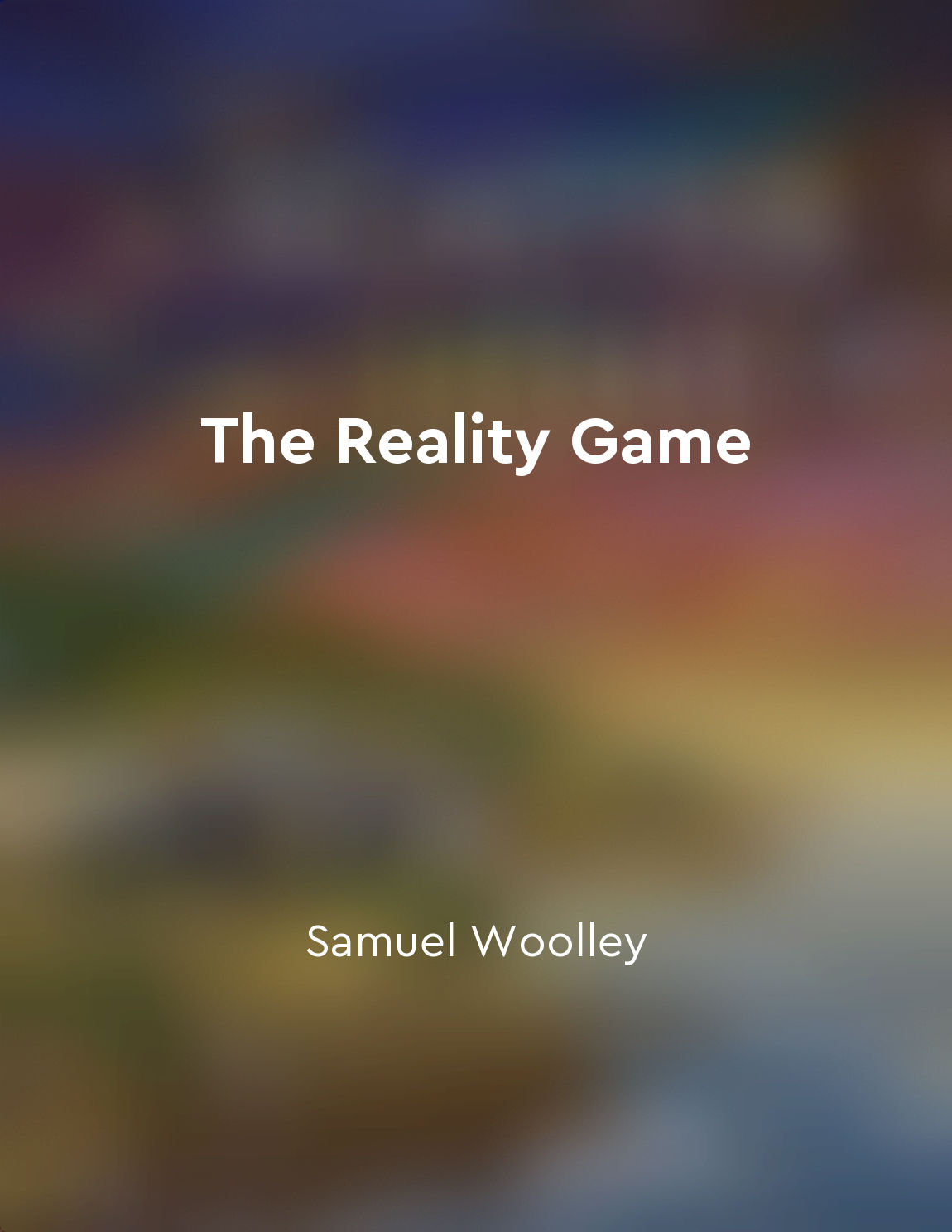Social media platforms play a key role in spreading disinformation from "summary" of The Reality Game by Samuel Woolley
The spread of disinformation is a complex and multifaceted issue in today's digital age. Social media platforms have become powerful tools for spreading false information, manipulating public opinion, and even influencing election outcomes. The ease and speed at which information can be shared on these platforms have made them ideal breeding grounds for disinformation campaigns. One of the key reasons why social media platforms play such a significant role in spreading disinformation is their ability to reach a wide audience quickly. With billions of users around the world, platforms like Facebook, Twitter, and Instagram have the potential to disseminate false information to millions of people in a matter of seconds. This rapid dissemination of information makes it difficult for fact-checkers and other credible sources to counteract false narratives effectively. Furthermore, social media algorithms are designed to prioritize content that generates engagement, such as likes, shares, and comments. This means that sensational or provocative content, including false information, is more likely to be promoted and spread virally on these platforms. As a result, users are often exposed to biased or misleading information that reinforces their existing beliefs and biases. Another factor that contributes to the spread of disinformation on social media is the lack of oversight and regulation. Unlike traditional media outlets, social media platforms are not held to the same standards of accuracy and accountability. This lack of oversight allows malicious actors to exploit these platforms to spread false information without facing any consequences. In addition, the anonymity and pseudonymity afforded by social media make it easier for bad actors to create fake accounts and personas to spread disinformation without being easily identified. This makes it challenging for platforms to detect and remove false content effectively, allowing it to continue circulating unchecked.- The role of social media platforms in spreading disinformation cannot be understated. The combination of wide reach, algorithmic amplification, lack of oversight, and ease of anonymity makes these platforms fertile ground for the spread of false information. Addressing this issue will require a multi-faceted approach that involves collaboration between platforms, policymakers, civil society, and users to promote digital literacy, combat misinformation, and hold bad actors accountable.
Similar Posts
Digital literacy is crucial for future generations
In the 21st century, digital literacy has become a fundamental skill for individuals to possess. As technology continues to adv...

Youth activism inspired change
In the tumultuous aftermath of the Arab Spring, young people were at the forefront of demanding change. Their activism was a po...
Search data can predict behavior
Search data can predict behavior in ways that traditional data sources cannot. People are often more honest in what they search...

Facing danger
In the world of investigative journalism, danger is always lurking around the corner. It comes in many forms - from the physica...

Dark psychology can be used for malicious purposes
The manipulation tactics outlined in this book serve as a reminder of the potential dangers lurking within the realm of dark ps...

Iraqi forces regained control of Mosul
In June 2014, the Iraqi city of Mosul fell to the Islamic State, sending shockwaves around the world. The terrorists paraded th...
Value constructive feedback
When we seek feedback, we often hope for validation and praise. We want to hear that we're doing well, that our ideas are great...

Our lives are constantly being monitored
As we go about our daily lives, we may not realize the extent to which we are being observed. From the moment we wake up to the...
He examines the role of the judiciary in safeguarding individual rights
Tocqueville delves into the critical function of the judiciary in upholding the rights of individuals within a democratic socie...
Spin is a temporary fix that ultimately fails to address underlying issues
The idea of spin as a band-aid solution that does not tackle the root causes of a problem is a central theme in the book "Spin"...


